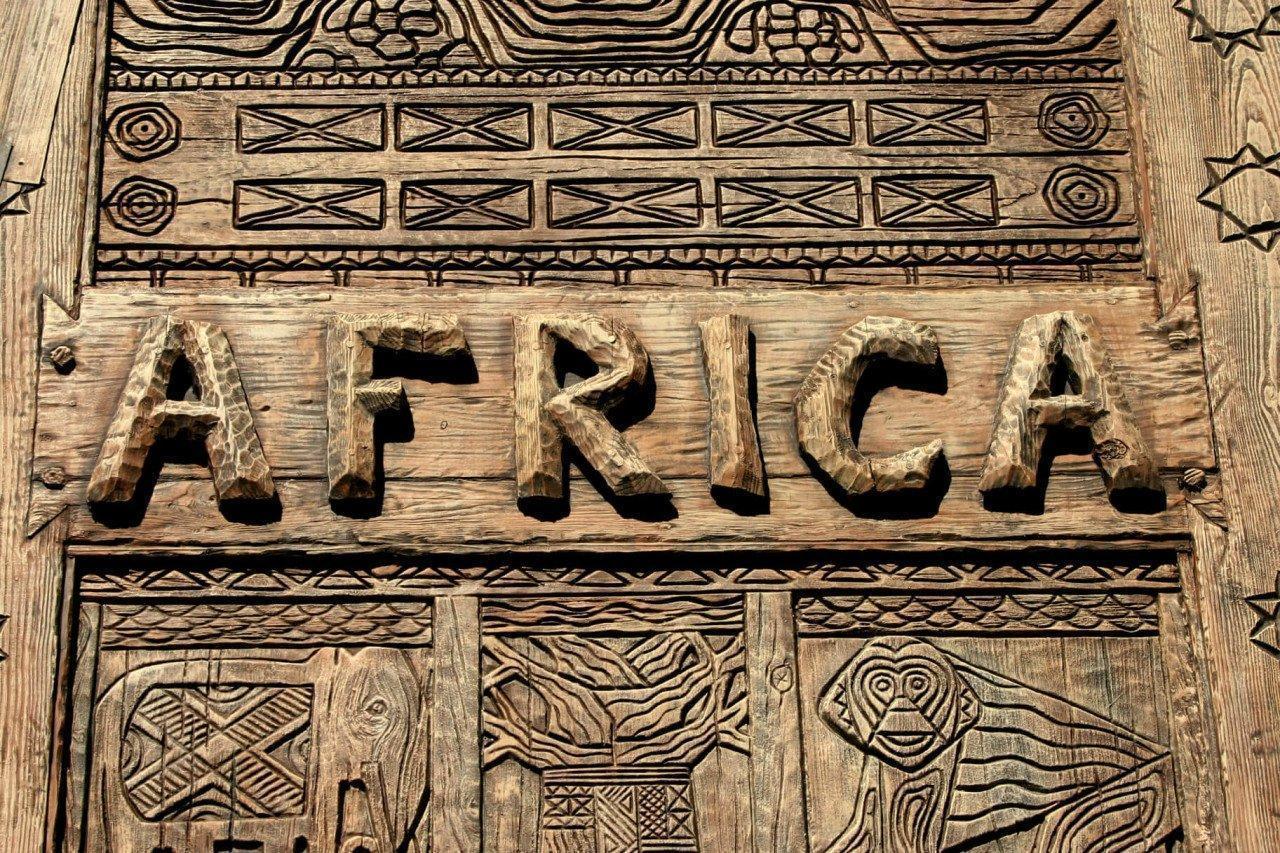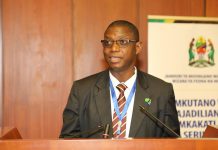By Francisca Augusto
Africa-Press – Lesotho. This Saturday, the 25th, humanity witnesses another day of “festive” for its home continent, in honor of the 61st anniversary of the founding of its diplomatic arm, the Organization of African Unity (OAU).
When, in 1963, the OAU was created, the dream of building a free and developed continent echoed among thousands of Africans, eager to overcome economic backwardness or underdevelopment.
The political pact formalized by 30 heads of State and Government, in Addis Ababa, Ethiopia, marked the beginning of a long journey, which would materialize the foundations of the pan-Africanist movement, in favor of a united Africa.
Africa thus gave the world a clear indication of a general awakening of consciousness, seeking, above all, the end of colonialism and neocolonialism and the promotion of peace and solidarity among African countries.
The founding of the OAU cemented the purposes of the 1st Pan-African Congress, held in Paris in 1919, under the leadership of Du Bois, Marcus Garvey and Kwame Nkrumah, who nurtured the dream of the total emancipation of Africa.
Theoretically, the doors were opened for the affirmation of a territory potentially rich in minerals and diverse raw materials, but which, 61 years later, still continues to search for the magic “compass” to assert itself.
Despite slight advances, from the point of view of infrastructure construction, Africa is still far from materializing the political and philosophical thought brought in 1963, under the influence of Kwame Nkrumah and Haile Selassie, from the group of founding fathers of the OAU.
On its 61st anniversary, the continent presents vast portions of its territory with no reason to celebrate, as they are shadowed by multiple humanitarian crises with the same origins.
The AU emerged to create a space for dialogue, promote development, combat racism and peacefully resolve post-independence internal conflicts, premises that remain, unfortunately, absent in many countries, especially in the Great Lakes Region.
These are large-scale political ideals, which would bring to Africa a sustainable development model adjusted to the reality of the continent’s people, capable of ensuring the sovereignty of the Member States.
However, the foundations and thoughts of the precursors of Pan-Africanism collided in time and space, leaving Africa in almost the same condition of begging, full of socioeconomic and political vulnerabilities, such as hunger, poverty and instability.
The continent has a long and difficult road ahead to achieve development, in a dark situation marked by recurrent social upheavals and political instability, which call into question actions in favor of development objectives.
To reverse this situation, African leaders experimented again, in 2002, with a new model of collective interaction, with the creation of the African Union (AU), in place of the AU, still with the feeling of “mission accomplished”.
The feeling of mission accomplished found justification in the partial achievement of the objectives that guided the first initiative, with the total decolonization of the continent, towards the consolidation of peace and solidarity between nations and the prosperity of their people.
In other words, the replacement of the OAU by the AU was based precisely on the mismatch of some of the primary objectives, such as the defense of independence and the fight against all forms of colonialism or neocolonialism.
The new institution thus appears to not only place Africa in the global economic panorama, but also resolve the countries’ social, economic and political problems, difficulties made worse by the phenomenon of globalization.
Promoting and accelerating the continent’s socioeconomic integration, preserving peace, stability and security, encouraging scientific research and eradicating preventable diseases are among the main goals listed in the Constitutive Act of the African Union.
New agenda also threatened (?)
Despite efforts, the AU also faces the same difficulties as its predecessor OAU, and is today faced with a multitude of regional and global problems, in some cases chronic.
Unquestionably, the resolution of Africa’s problems lies, firstly, in the eradication of violent conflicts across the continent, a task that takes time to see the light at the end of the tunnel.
The normalization of government processes is another essential premise for the viability of long-term policies and investments advocated in the ambitious AU agenda.
The African Union proposed to work for a more cohesive Africa capable of overcoming challenges linked to the promotion of development, through its Agenda 2063, one of the greatest hopes of the African people and nations.
Agenda 2063 is the result of two movements that were crucial to the African vision, as a representative unit, Pan-Africanism and the OAU, with the aim of creating a prosperous continent.
In addition to prosperity, the AU Agenda aims for an integrated, peaceful and dynamic Africa, capable of promoting its own development, through 14 initiatives in various areas, such as infrastructure, education, science, technology, culture and peacekeeping.
With this, we aspire to a prosperous Africa, based on inclusive growth and sustainable development; politically democratic and united based on the ideals
of Pan-Africanism and the vision of the African Renaissance.
It is hoped that this Agenda will help to provide an Africa of good governance, democracy, respect for
human rights, justice and rule of law; peaceful, safe, with a strong cultural identity, heritage, values and common ethics, whose development is people-oriented, trusting in the potential of the African people. To this end, it is essential that politicians and civil society join synergies to bring viable solutions, that lead to peace and security for the more than one billion inhabitants of the continent’s birthplace.
Likewise, the development of the continent and the well-being of Africans requires joint and targeted actions from the Heads of State and Government, focused on combating asymmetries and social inclusion, seeking, if necessary, new sources of external financing.
Credible partnerships
Africa must also continue to seek credible partners, who work on development models adjusted to the real needs of Africans, with mutual benefits, without returning to new forms of colonization or domination of Africans.
The continent needs strategic partnerships, as occurred recently at the 16th US-Africa Business Summit, which served to deepen the options available, through the American Government and institutional investors, as well as American and African banks.
The summit aimed to discuss effective solutions to boost sustainable trade partnerships between the USA and Africa, which is increasingly strategic and a priority in the American Administration’s foreign policy.
The main objective of the meeting was to enable African leaders to directly contact decision-makers from Governments and the private sector, in order to promote sustainable business partnerships between the US and Africans.
In this regard, the Angolan Head of State, João Lourenço, who spoke as first vice-president of the African Union, said that Africa can play a crucial role in overcoming the world’s energy and food crisis.
According to the Angolan President, the world must count and look first at Africa, for its abundance of arable land, water resources, sun and young labor.
The latter can easily and quickly master the management of modern agricultural machinery and absorb knowledge of the most modern cultivation techniques, he highlighted.
It is therefore expected that African countries will establish bridges and partnerships to give greater consistency to their development projects, attracting US investors to agricultural fields, one of the main drivers of growth in African economies.
Studies indicate that African countries spend, on average, around 45 billion US dollars annually on agricultural imports, despite having 60% arable land to produce food for local populations and the rest of the world.
According to several experts, investment in the agricultural sector in Africa plays a decisive role in the success of the African Union’s Agenda 2063, as the continent’s economic base is supported by agriculture and the extractive industry.
In Africa, according to available studies, subsistence agriculture is carried out by 70% of the population and women represent 60% of the workforce.
In short, the “Africa we want”, as stated in Agenda 2063, is inclusive and democratic, which values the potential of women and youth and in which children receive dignified treatment.
After 61 years, Africans hope for an Africa open to the world, capable of asserting itself as a strategic partner of the great powers, a supplier of raw materials and food to the entire world, taking into account its vast natural and water resources. existing.
On a political level, Angolan diplomacy understands that, over the last few decades, Africa has seen setbacks in a large part of its States, as a result of the resurgence of coups d’état.
To this end, Angola continues to defend legality and condemn all unconstitutional changes in governments that have taken place recently on the continent, principles considered essential for the long-awaited development of Africa.
Only with these premises can the foundations of the current of Pan-Africanism be, in fact, put into practice and Africa will be able to take the necessary leap towards its self-affirmation and inclusive growth.
ANGOP journalist
For More News And Analysis About Lesotho Follow Africa-Press





![THE RULING PARTY [RFP] LAUNCHED FIRST DIASPORA COMMITTEE THE RULING PARTY [RFP] LAUNCHED FIRST DIASPORA COMMITTEE](https://static.africa-press.net/lesotho/sites/62/2026/02/sm_1771878934.036281-218x150.jpg)
